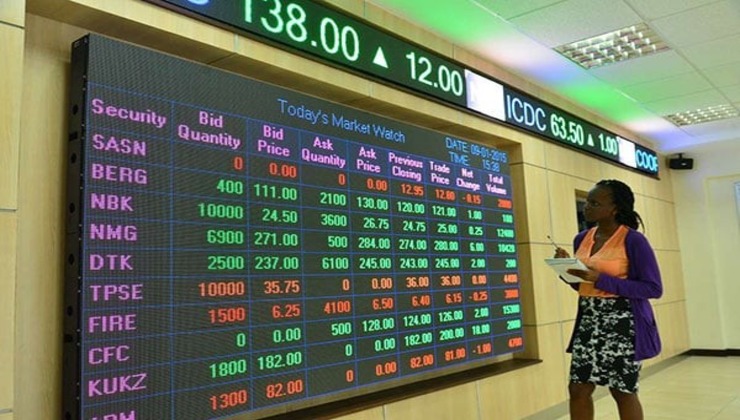BlackRock, one of the world’s largest asset management organizations, has invested in the Nairobi Securities Exchange (NSE) after a four-year absence, marking a significant victory for the Kenyan market, which is coming off its worst year on record.
Kamau Thugge, governor of the Central Bank of Kenya (CBK), stated in a meeting with bankers last week that he met with representatives from the American multinational with $9.1 trillion in assets under management this month after Kenya was chosen as one of ten economies in which to invest.
“The other day I met BlackRock Asset Managers. They came to my office and wanted to know how the economy was doing. and said they had kept away from Africa for the last four years, but now they have identified 10 countries globally where they think they can start investing,” Dr. Thugge informed bankers at a ceremony to congratulate Habil Olaka, who had just departed the Kenya Bankers Association as CEO.
“Blackrock made an investment in the equities, and if you are keen and have been looking at what’s happening in the stock market, you can start to see it has been going up,” Dr. Thugge spoke during the forum.
This comes at a time when NSE investors have seen steady increases in recent months. According to Business Daily, equities turnover increased from a low of Sh2.6 billion in January to Sh4.6 billion in February and Sh4.5 billion so far in March.
The increasing activity in stocks has coincided with a small rise, bringing the NSE’s year-to-date returns to 16.8 percent as of Friday last week.

Dr. Thugge believes that developments being undertaken in the foreign currency market are one of the primary reasons for Blackrock’s interest in the Kenyan market. The shilling has been on a sustained rally, gaining 16 percent against the US dollar since the beginning of 2024, following the issuance of the $1.5 billion (Sh198.0 billion) Eurobond. The proceeds were used to fund the partial buyback of the June 2024 $2 billion (Sh264.1 billion) maturity, as well as the outsized oversubscription of the debut infrastructure bond issued this year. According to the apex bank, the volume of foreign exchange transactions accounted for by the interbank market has increased from 7% at the beginning of the year to 32% currently, a jump that the CBK says is one of the key factors in the local unit’s appreciation against major currencies around the world.
This revelation comes 11 weeks after the apex bank reduced the minimum amount that banks can trade in the interbank foreign exchange market to $100,000 (Sh13.2 million) from the previous $250,000 (Sh32.9 million). This was following the launch of an electronic trading platform-


